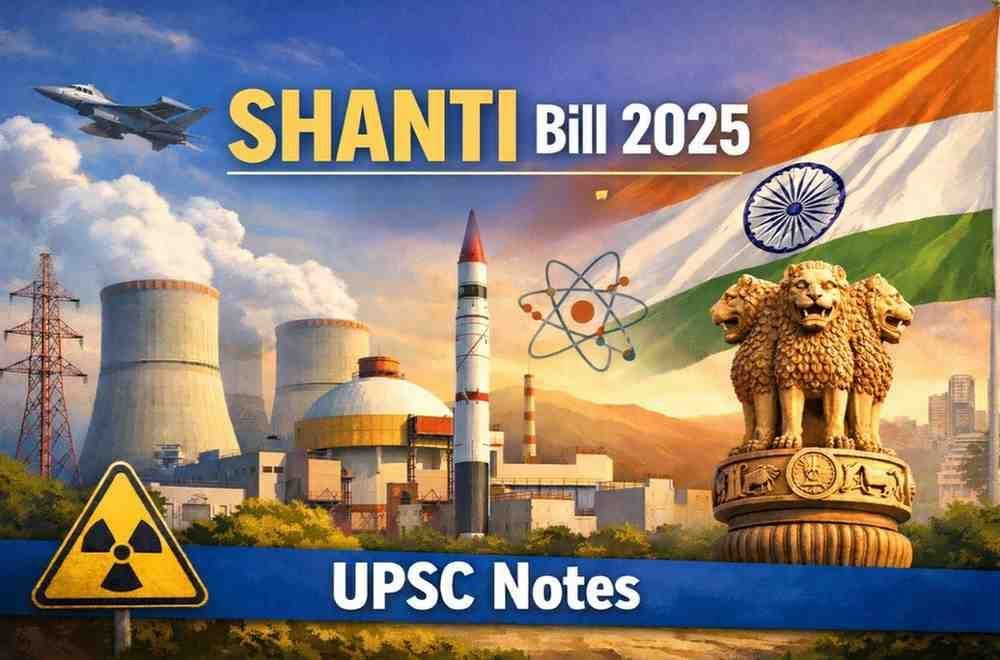Current Affairs 2024- The International Solar Alliance (ISA): A Game Changer in Global Solar Energy
Feb, 2025
•3 min read
The International Solar Alliance (ISA) is an important international initiative that aligns with multiple aspects of the UPSC General Studies Paper II and Paper III. Understanding ISA can give UPSC aspirants an edge in topics related to climate change, renewable energy, international cooperation, and sustainable development.

What is the International Solar Alliance (ISA)?
Launched in 2015 by India and France during the United Nations Climate Change Conference (COP21), the ISA is an intergovernmental organization aimed at promoting solar energy globally. It serves as a collaborative platform for nations to work together and increase the deployment of solar energy technologies.
ISA's 'Towards 1000' Strategy aims to:
- Mobilize USD 1000 billion in investments for solar energy solutions by 2030.
- Deliver energy access to 1000 million people using clean energy.
- Install 1000 GW of solar energy capacity.
- Mitigate 1000 million tonnes of CO2 emissions annually.
Key Objectives of ISA
ISA's primary objectives align with Sustainable Development Goals (SDGs), making it a critical topic for the UPSC Mains and Prelims. The key objectives include:

These goals directly tie into India’s commitment to renewable energy and climate action, two significant components of the UPSC syllabus.
Governance of ISA
ISA has a well-structured governance mechanism which includes:
- ISA Assembly: The apex decision-making body with representatives from all member countries.
- Steering Committee: Provides strategic guidance and ensures efficient operations.
- Secretariat: Executes decisions and implements programs.
The Director-General heads the ISA and is responsible for the day-to-day operations of the Secretariat.
Global Significance of ISA
The ISA's significance extends beyond national boundaries, directly contributing to the global renewable energy transition. The initiative is pivotal in meeting climate goals and enhancing global energy access. For India, it holds several benefits:
- Leadership in Renewable Energy: ISA aids India in achieving its goal of 450 GW of renewable energy by 2030.
- International Cooperation: It boosts India's soft power and strengthens its position in global climate negotiations.
- Climate Adaptation: It provides India with a platform for mitigating and adapting to climate change.
For the world, ISA helps promote clean energy, economic growth, and energy access, particularly in rural and remote areas.
ISA’s Initiatives and Projects
ISA’s various projects provide opportunities for capacity building and technological advancements in solar energy. Here are some key initiatives:
- Solar Technology Application Resource Centre (STAR C): Provides capacity building and institutional strengthening for solar energy in developing countries.
- ITEC Scheme: Offers training to master trainers in solar energy, with the Government of India covering all expenses.
- ISA Solar Fellowship: Provides fellowships for mid-career professionals to develop solar energy expertise and contribute to policy development.
- One Sun, One World, One Grid (OSOWOG): Focuses on connecting regional energy grids to enable the transfer of solar energy across borders.
- Affordable Finance Mechanisms: The ISA works to reduce the financial barriers to solar energy adoption by promoting funding from sources like the Green Climate Fund.
Challenges for ISA
Despite its success, the ISA faces challenges, which are important for UPSC aspirants to understand:
- Funding Issues: Securing the necessary financial resources to achieve its ambitious goals.
- Limited Participation: Although over 110 countries are signatories, more countries need to be on board for the full realization of ISA's objectives.
- Policy Coordination: Varying energy policies across countries make it difficult to align efforts.
- Implementation Challenges: Infrastructure deficits, political instability, and funding shortfalls often delay the successful implementation of solar projects.
How Can ISA Steer Its Future?
To overcome these challenges, ISA needs to:
- Increase Collaboration with international organizations and the private sector.
- Expand Membership to more countries, especially those with high solar potential.
- Implement Policy Reforms: Focus on policies that encourage solar adoption and reduce fossil fuel subsidies.
- Facilitate Financing for solar projects through dedicated funds and partnerships.
- Foster Innovation in solar technology and share best practices across countries.
Conclusion
For UPSC aspirants, the International Solar Alliance (ISA) is a key topic in understanding global climate initiatives and the importance of renewable energy. It ties into environmental issues, international relations, and energy security, which are vital components of the General Studies syllabus. By exploring ISA's objectives, initiatives, and challenges, aspirants can enhance their understanding of sustainable development and climate change solutions, crucial for both the Prelims and Mains.

![Sabka Bima Sabki Raksha: New Insurance Bill [2025]](/_next/image?url=https%3A%2F%2Fblog-media.superkalam.com%2FSabka_Bima_Sabki_Raksha_New_Insurance_Bill_f66a1e45d1.jpeg&w=3840&q=75)
![MGNREGA Vs VB-G RAM G [UPSC 2025]](/_next/image?url=https%3A%2F%2Fblog-media.superkalam.com%2FG_RAM_G_32a42966ea.jpeg&w=3840&q=75)